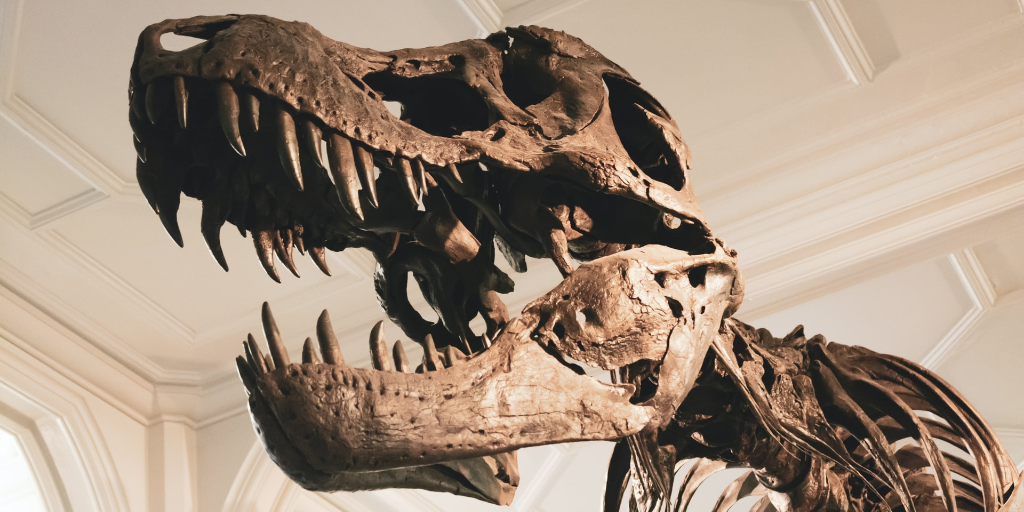Piece together
Today’s expression is “piece together.” When you make something by putting together many pieces from many different places, then you are piecing it together. Let’s start with the easier, more literal way of using “piece together.”
The Field Museum in Chicago is now open. There is a huge dinosaur, a Tyrannosaurus Rex named Sue. She is the one of largest and most complete dinosaur skeletons ever found on this earth. She was not discovered fully intact. Scientists, including Sue Hendrickson, after whom the dinosaur is named, had to find all the pieces in South Dakota, part of the United States. Then, once they had the bones, they had to piece together the skeleton. They had all the pieces, but no instruction manual. They had to piece it together. They had to use their existing knowledge and all the pieces before them to put it together. They created a whole out of many pieces from different places.
You can piece together a meal. This usually means you don’t have a plan, no grand recipe to cook that night. But you look in your cupboard; you look in the fridge; you look at everything you have. And you think about, by using a little leftover this, a little of that, and something from way back in the fridge, I could make something that at least resembles a meal. You’re putting pieces together from many different places. A little leftover pasta from last night, a chicken breast you found in the freezer, and some diced up peppers and onions that you didn’t know what to do with. That’s piecing together a meal—it’s not going to win any prizes; it won’t be on the cover of a magazine; but it works. You piece it together.
When you piece together a mystery, you solve the mystery by gradually collecting the clues and forming a theory about what happened. And that’s how you heard it earlier today. We were talking about a new discovery of hieroglyphs on a mountaintop in Mexico. And this discovery will help scientists piece together what it was like to live in the Sixth Century in Mesoamerica. Piece together—because we don’t know for sure. We have to look for clues and form them into a theory or an explanation.
We talked about the unfortunate case of the students in Panama who were killed on their way back from a swimming trip. Police there are trying to piece together what happened. They have witness statements, evidence at the scene, maybe Whatsapp messages or social media posts, interviews with friends and family of the victims, and much more. They’ll have to take all the evidence and piece it together to figure out what happened.
JR’s song of the week
It’s time for JR’s song of the week. It’s “Riptide” by the Australian singer Vance Joy. I asked JR why he selected this one and he said, “just because I like it.” That’s a good enough reason for me! A riptide happens at a beach, and it’s when the tide pulls water through a small inlet in the beach. It’s dangerous because if you’re swimming and get caught in a riptide, it can carry you far out to sea. That’s where it gets its title from. “Riptide” by Vance Joy is the song of the week. You can always find your song of the week by searching “Plain English Playlist” on Spotify.
See you next time!
That’s all for today. If you ever have the chance to visit Mexico City, then I highly recommend the archaeology museum there. It’s one of my favorites. I go almost every time in Mexico’s capital city. There are some really incredible artifacts from ancient cultures, some of them as tall as a three-story building. It’s a great way to spend a day.
Hey, if you enjoyed today’s lesson, then you would love being a member of Plain English Plain English Plus+ , our membership for people who are ready to take the next step in English. A Plus membership includes video lessons, exercises, translations, live calls on Zoom, a supportive community, and much more. To learn more about becoming a Plus member, just visit PlainEnglish.com/Plus
Use realistic expressions like a native speaker

